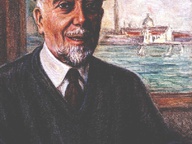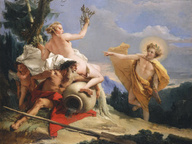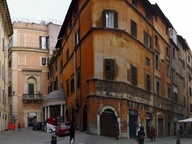Hypertimes
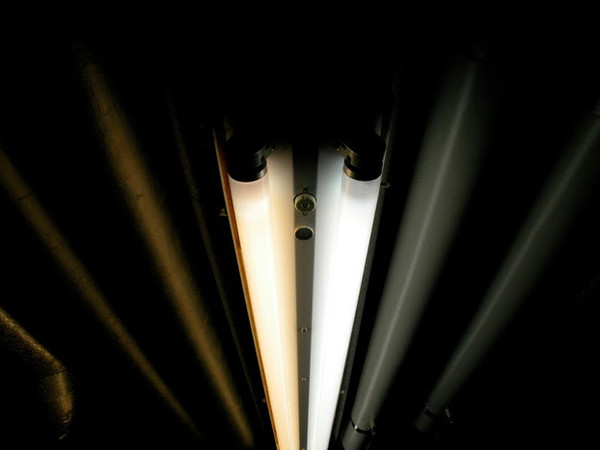
© FuturDome | HYPERTIMES. Ten gazes across pastness, presentness and futurity
Dal 01 Aprile 2019 al 25 Maggio 2019
Milano
Luogo: FuturDome
Indirizzo: via Giovanni Paisiello 6
Orari: During Milan Art Week & Design Week: 2 – 14 April every day 11am – 7pm Art Night 6 April: 11am – 10pm 16 April - 25 May: Tue – Sat 4 – 7pm Weekly hours: from Tuesday to Saturday, from 4 pm to 7 pm
Curatori: Ginevra Bria
Costo del biglietto: ingresso gratuito
Telefono per informazioni: +39 393.4040.233
E-Mail info: futurdome@futurdome.org
FuturDome is glad to announce a video exhibition questioning the state of existing limits between transience and temporality as both variables dependent on what marks a present, as a materialization on what it’s becoming and it’s disappearing through building memories. The video exhibition introduces ten different scenarios outlining definite gestures towards some kind of incessant motions of the present times: non-authoritarian attitudes and conceptual approaches will deconstruct any form of classification to take an alternative path where the liberation of systems, structures and media, in order to create freedom and openness, become both idiosyncratic and tangible.
Hypertimes through ten video artworks, realized during the last three years, will represent an heterogeneous linguistic and visual field for spatializing time, to shed light on his intuitive and conceptual approach. Different narrative times will be present at different times, each video will define a spatio-temporal passage where time changes relatively to a further temporal dimension, an hypertime: a dimension whose sole metaphysical function is to make change of times themselves possible.
Each proposal yields a multiplicity of passages rather than the sought-for unique unfolding of the universe and Hypertimes will show how the passage of time consists in the fact that more of the world comes to be as time goes by. Slowly, from Tobias Madison (1985, Switzerland) O Vermelho do Meio Dia, 2017 to Martine Syms (1988, California) Notes on Gesture (2015-2016) to Patrick Panetta (1977, Germany) Scale of Rating (2019), it’ll be revealed a sparse universe of different hypertimes, emphasizing the notion of deconstructed frames, where the space of the image itself is ruptured and reveals the inbetweenness of gaps and remainders. Hypertimes represent the beginning and culmination of conceptual and poetic reasoning, filled with what could become an outcome, filled with our collective losses.
This exhibition will provide further insight into the mind of artists who, during their lifetime, rejected any analytical discourse about their work in favour of its perceptive experience. In works such as Mouth (2017) by Maja Čule (1984, Croatia), Lake of Fire (2010-2016) by Mikkel Carl (1976, Denmark) or Stasis (2018) by Maya Watanabe (1983, Perù), Composition For Mouth (Songs My Mother Taught Me) I & II, 2018, by Oliver Beer (1985 UK) the abandonment of a fictional past, present and future will not seem to prevent visitors from treating fictions as temporally structured, through the video dimension. That is, we can imagine a time series in ways not defined by a past, present and future. We can, as it were, view fictional time from a 'God's eye' perspective. That suggests that it is not, after all, an essential feature of time that it passes, or has a present which marks the boundary between a determinate past and an indeterminate future.
Perhaps, even if time is structured in this way, this is, like its geometry, a contingent feature. In Hypertimes, through Nau (2017) by Cinthia Marcelle and Tiago Mata Machado, La Plaza del Chafleo (2019) by Ivàn Argote (1983, Colombia) and Ripetiçoes (2018) by Clara Ianni (1987, Brasil), whenever there will be a present moment, the past will also be present, although it’ll be always invisible. That’s what draws the exhibition to create a video environment: the ability to put different times on the screen and see how they collide or how they resonate with one another, how the past tells a story within a present story. Hypertimes will become a reference to the atmospheric human impermanence in the video works, enhancing their relativist poetical approach. Hypertimes by merging pasts and presents simultaneously will create a dimension where neither past nor present, but a limbo that can embrace centuries without blinking an eye. Without the use of artificialized scenes videos will contain each time frame, something that is now in parallel and then is created – or now, then and then. Thanks to BenQ’s high quality technology empowerment, the distinction between past, present and future events, following Hud Hudson theories, will become a stubbornly persistent illusion.
SCARICA IL COMUNICATO IN PDF
COMMENTI

-
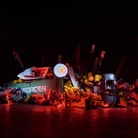 Dal 27 marzo 2025 al 27 luglio 2025
Milano | Pirelli HangarBicocca
Dal 27 marzo 2025 al 27 luglio 2025
Milano | Pirelli HangarBicocca
Yukinori Yanagi. Icarus
-
 Dal 27 marzo 2025 al 30 giugno 2025
Bologna | Museo Civico Archeologico
Dal 27 marzo 2025 al 30 giugno 2025
Bologna | Museo Civico Archeologico
CHE GUEVARA tú y todos
-
 Dal 27 marzo 2025 al 20 luglio 2025
Firenze | Villa Bardini
Dal 27 marzo 2025 al 20 luglio 2025
Firenze | Villa Bardini
Caravaggio e il Novecento. Roberto Longhi, Anna Banti
-
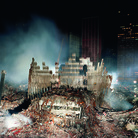 Dal 25 marzo 2025 al 24 agosto 2025
Brescia | Museo di Santa Giulia
Dal 25 marzo 2025 al 24 agosto 2025
Brescia | Museo di Santa Giulia
Joel Meyerowitz. A Sense of Wonder. Fotografie 1962-2022
-
 Dal 22 marzo 2025 al 20 luglio 2025
Ferrara | Palazzo dei Diamanti
Dal 22 marzo 2025 al 20 luglio 2025
Ferrara | Palazzo dei Diamanti
Alphonse Mucha / Giovanni Boldini
-
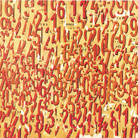 Dal 22 marzo 2025 al 08 giugno 2025
Venezia | Ca’ Pesaro – Galleria Internazionale d’Arte Moderna
Dal 22 marzo 2025 al 08 giugno 2025
Venezia | Ca’ Pesaro – Galleria Internazionale d’Arte Moderna
Raoul Schultz. Opere 1953-1970
